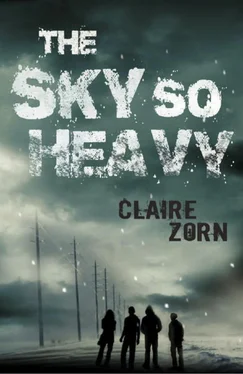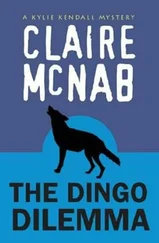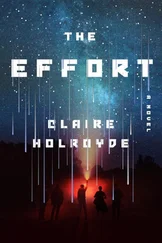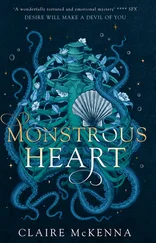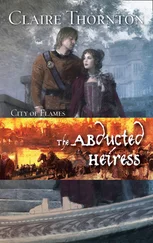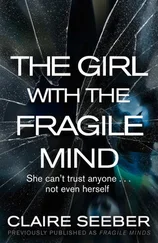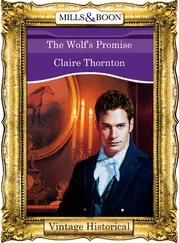Now there is movement, lots of it. Mainly the movement of my head, my cheek slamming into the brickwork. I imagine how the scene would look from behind us, I see the arch of the torchlight up the brick walls. I see the white pressure marks from his fingers in my neck. There is spittle in my ear and I have had no practise at fighting since last time. I’m not really doing a whole lot of fighting anyway, you don’t, when there’s a gun pressed into your skull. And now things seem to slow down. I feel a creeping warmth up the back of my neck. A comfortable warmth nestling in the base of my skull. I close my eyes.
Two cans of tomato soup, a handful of sultanas and a cup of rice left. Two and a half litres of water though. That was a plus.
Still no Mick.
Zadie vomited again, twice. She was quiet and slept a lot. We fed her soup from a teaspoon and did not talk about what was happening to her.
Mum had said not to go into the city, but I couldn’t imagine that everyone there had been left for as long as us without more rations. The thought that we might have been abandoned was beginning to follow me around and I couldn’t shake it. If Mum was still there she would have a plan. Leaving would mean letting go of the hope that Dad would come back for us.
If we were to go we would need a car. Either way we would need more food.
I decided to go for a walk, see if I could track down more food. I wasn’t naive enough to believe that someone would just hand food over without anything in exchange. My eyes roamed the living room for something I could trade. They landed on Dad’s liquor cabinet. I selected three bottles of whisky and placed them carefully in a plastic grocery bag.
When I finally prepared to go, as I looked at Max and told him that I would be back, I thought about what the air would feel like outside on the street, what the space would feel like. I remembered going on holidays to the Great Barrier Reef, riding out on the clear sea in a boat with Mum and Dad and Max. My diving mask fogging up again and again as we waited to plunge into the blue. (‘Don’t breathe through your nose, matey,’ Dad had to keep reminding me.) The expectation of it was an ache in my stomach. The space, above and below. It was freeing, that endless space. But at the same time intensely threatening, like the grey that seemed to now stretch on forever.
The asphalt was smothered in snow, unbroken by footprints or tyre tracks. I kept to the side of the road where there was grass beneath the snow – better traction. I didn’t want my palms skinned by the ice if I lost my footing. My feet sunk into the grey. I climbed the hill and felt like I was climbing into the sky.
When I reached the bus stop at the top of the hill I stopped. The cold was brutal, sharp in my lungs. I started to cry. I let myself because I couldn’t cry in front of Max. I cried for the year sevens that scrambled to get on the bus. I cried for Lucy and my school and Lokey and Mr Effrez. I had never felt the merciless roll of time like I did then. The pull of it, always in one direction. No going back. I wanted to fall onto my knees and howl but I knew that I would do that and then I’d stand up again and I’d have to keep going and nothing would be any different. But I did let myself cry. I didn’t bother to wipe the tears away, I let them go. I imagined that the moment they hit the cold ground, their warmth would melt the snow for just a fraction of a second before they became part of it.
I looked up the road toward the highway, the route my bus used to take to school, the way out. The red bricks of some of the houses stood out stubbornly against the cover of grey. I made my way past Starvos’ shop. Posters advertising Cornettos and Pura milk and a scratch and match Coca-Cola competition popped colour. Above the shop the blinds were drawn across the windows of Starvos’ flat.
There was no plan. I didn’t know where I was going, I guess I thought I’d just keep walking until I saw somebody else, someone who might give me some food. I trudged, eyes searching the blank façade of each house. And then I saw it, further up the street. Someone closing the roller door of their garage. Walking up their path, opening the front door.
‘Wait!’ I ran toward the house. ‘Wait!’
Of course they heard me. There was no other sound. The figure looked over his shoulder. I jogged toward him, up the driveway.
It was Arnold Wong.
I stopped. ‘Hey,’ I said quietly.
Arnold Wong didn’t say anything. He looked at me. In his left hand was one of those green enviro bags. Whatever was in it looked heavy.
‘Um, I’m Fin,’ I said slowly.
‘I know who you are.’
‘Okay, cool, it’s just I wasn’t sure if… okay.’
‘What do you want?’
‘Can I talk to you for a second?’
The look on his face served to highlight the fact that I was already talking to him whether he liked it or not.
‘I live just down the street, round the corner, down the hill, Bellbird… um, look, do you know where I can find some food? We’re out. It’s just my brother and me. And our neighbour’s little girl.’
He looked at me, expressionless. ‘Come inside,’ he said. He went through the front door and left it open behind him. I took off my shoes and went inside.
The warmth met me as soon as I entered the hall. There was a living room on the right. It had thick brown shag-pile carpet and furniture that looked like it had been found at Vinnie’s, it was crazy-tidy. I followed Arnold down the hall further until it opened into a kitchen on the right. The kitchen had the same old-fashioned vibe as the living room: orange tiles and green laminate bench tops, totally spotless. Other than the cans of food, which Arnold took from the green bag and stacked in the pantry, there were no clues that the world had fallen into disorder. Arnold didn’t look at me or say anything, so I just stood there. A small part of me was tempted to say, ‘Well, how about this weather!’ but I didn’t. Arnold emptied the bag and then turned to me.
‘When did you last eat?’
‘Yesterday.’
He looked at me as if I was a bug he was deciding to squash or not, sort of detached. I couldn’t meet his stare.
The fridge was covered in photographs, lots of a couple I assumed to be his parents.
‘My dad’s missing,’ I blurted out. ‘Haven’t seen him since this all started.’
Arnold’s eyes softened a little. ‘I’ll get you some food.’
‘No, hey. I’m not after yours. I just thought you might know—’
He ignored me, went down the hall and out the front door. I waited in the kitchen. The melted snow in the drainpipes outside dripped like the tick of a clock. The photographs were stuck to the fridge with neon alphabet magnets. There were a lot from what looked like Asian countries, maybe they went to visit family. There were some with African school children. There was a postcard with a portrait of another family, parents and three kids. Beneath the photograph it read ‘ Pray for the Kellys on mission in South-East Asia ’ and there was a web address.
The front door opened and closed. Arnold came into the kitchen with the green bag. He handed it to me. I took it.
‘You don’t have to do this.’
‘I know,’ he said.
‘Okay. Hey, do you want these?’ I held out the bag of whisky bottles. ‘In exchange…’
He frowned.
‘It’s whisky.’
Arnold raised an eyebrow. There was almost a smile. ‘Keep it.’
‘Okay. Thanks.’ I turned to leave.
‘I have some orange juice. Would you like some?’ It sounded more like an exam question than an invitation.
‘Oh. Sure. Thank you.’
‘Sit down.’
‘Okay.’ I sat in one of the orange vinyl kitchen chairs.
Читать дальше
